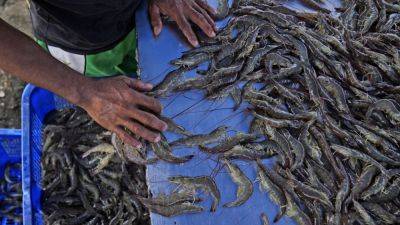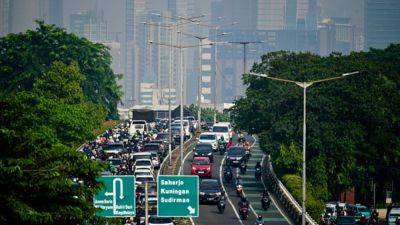Takeaways from AP’s report on how shrimp farmers are exploited as supermarkets push for low prices
BANGKOK (AP) — A new investigation focused on three of the world’s largest producers of shrimp released on Monday claims that as big Western supermarkets make windfall profits, their aggressive pursuit of ever-lower wholesale prices is causing misery for people at the bottom end of the supply chain.
The regional analysis of the industry in Vietnam, Indonesia and India, which provide about half the shrimp in the world’s top four markets — the United States, European Union, United Kingdom and Japan — is based on research done by an alliance of NGOs. It found a 20%-60% drop in earnings from pre-pandemic levels as producers struggle to meet pricing demands by cutting labor costs.
In many places this has meant unpaid and underpaid work through longer hours, wage insecurity as rates fluctuate, and many workers not even making low minimum wages.
Supermarkets linked to facilities where exploited labor was reported by workers include Target, Walmart and Costco in the United States, Britain’s Sainsbury’s and Tesco, and Aldi and Co-op in Europe.
The regional report brought together more than 500 interviews conducted in-person with workers in their native languages, in India, Indonesia and Vietnam — published separately as country-specific reports — supplemented with secondary data and interviews from Thailand, Bangladesh and Ecuador.
What did the researchers find?
In Vietnam, Hawaii-based Sustainability Incubator investigators found that the workers who peel, gut and devein shrimp typically work six or seven days a week, often in rooms kept extremely cold to keep the product fresh.
Some 80% of those involved in processing shrimp are women, many of whom rise at 4 a.m. and return home at 6 p.m. Pregnant women and new mothers can stop







